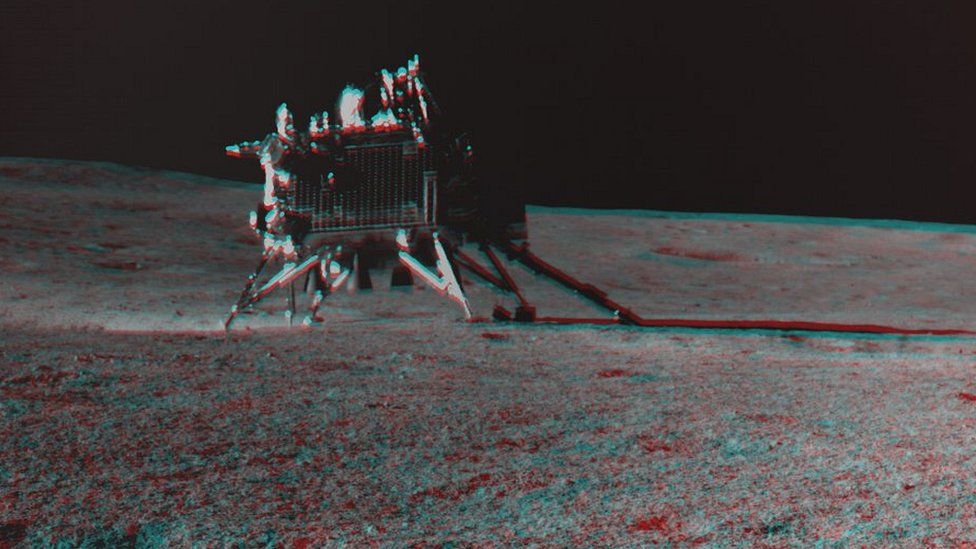-

-
-
Loading

Loading

Indian space scientists have stated that the chances of India's Moon lander, Vikram, waking up after a freezing cold lunar night are diminishing with each passing hour. A lunar day and night last just over 14 Earth days, and on Friday, the Indian Space Research Organisation (Isro) announced that they had not received any signals from the lander and rover after a new lunar day began. Vikram, which carried the Pragyaan rover, landed near the Moon's south pole in August and spent two weeks gathering data before being put into sleep mode at lunar nightfall. Isro expressed hope that the lander and rover would reawaken when the lunar Sun rose around 22 September, but former Isro chief AS Kiran Kumar has since stated that the chances of reawakening are diminishing. Temperatures near the lunar south pole are known to reach as low as -250C at night, and unless the transmitter on the lander becomes active, there is no way to establish connectivity. Isro continues its efforts to contact the lander and rover. India became the fourth country to achieve a soft landing on the Moon with Chandrayaan-3, following the US, the former Soviet Union, and China. The landing was strategically planned to coincide with the start of a lunar day to provide two weeks of sunlight for work, and Isro has regularly updated their progress and findings. While Isro is hopeful for the reawakening of Vikram and Pragyaan, they have also acknowledged the possibility that they may remain on the Moon as India's lunar ambassadors.